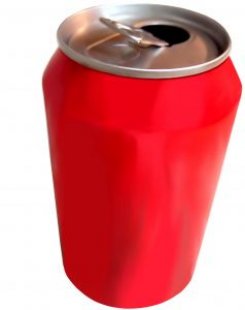The Fructose Problem Part One: US Fructose Consumption Sky High and Increasing, Especially Among Adolescents
Fructose is a naturally-occurring sugar found in fruits and vegetables. It’s also concentrated in corn syrup and increasingly used as a sweetener for , well, almost every type of mass market processed food or beverage. These commercial foods and drinks – and not fruits and vegetables – are the source of most of the fructose in the average American’s diet, and it turns out there is a lot of fructose in the American diet.

- Fructose-sweetened sodas, drinks and fruit juices should be limited or avoided if you want to stay lean and healthy.
Fructose in whole fruits and vegetables is bound up in the structure of those foods, so it’s released slowly as the plants are broken down by digestion, and the impact on metabolism is slight. Fructose-sweetened beverages, however, don’t digest per se, so the fructose must be metabolized all-at-once, which is highly undesirable from a metabolic standpoint.

- Naturally-occurring fructose in fruits and vegetables is no problem.
The increased consumption of this cheap sweetener – high fructose corn syrup – has been suspected as a possible causative factor in the explosion of obesity seen in recent decades, especially among adolescents
We’ll talk more about fructose in future posts. But to set the stage, a July 2008 study of fructose consumption showed that the average American gets more 10% of their total calories from fructose, about 55 grams daily. Adolescents 12-18 consume even more fructose, almost 73 grams daily. That’s well over two ounces of fructose sugar.
The largest source of fructose in the diet, by far, is from fructose-sweetened beverages. That’s fortunate in a way; since there are so many sugar free alternative beverages, anyone who really wants to cut back on fructose shouldn’t have a hard time doing so. A much bigger challenge will be successfully encouraging mass market food and beverages to embrace any of the excellent and natural non-sugar sweeteners such as stevia, xylitol and erythritol.




